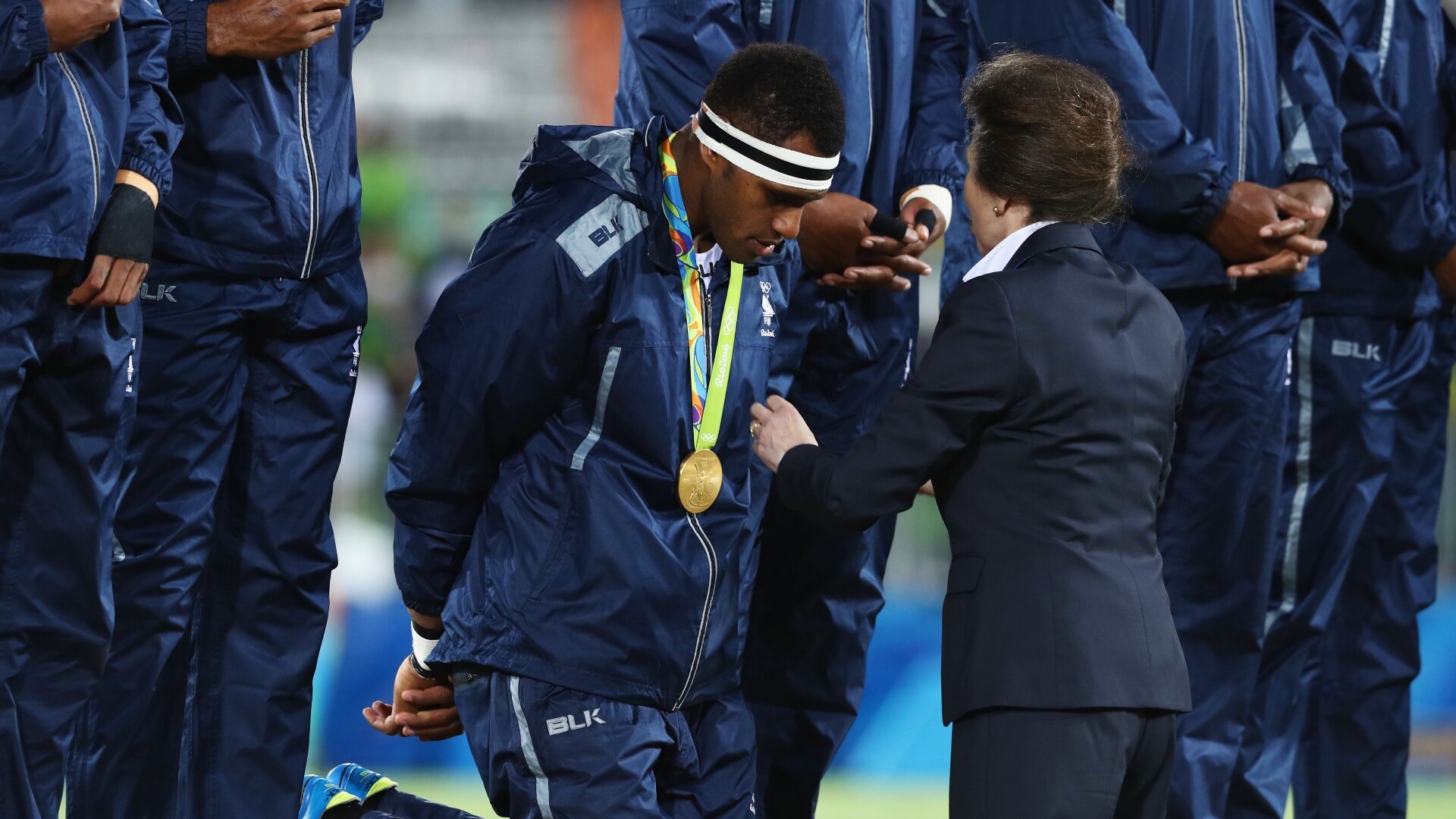'What you're seeing now are players doing incredibly well on the sevens series and then getting picked up by 15s'

Simon Amor believes the World Cup in Japan will prove that sevens is a crucial pathway for outstanding young players. New Zealand, South Africa, Fiji, England and the USA are amongst the teams that will feature attacking talent hailing from the HSBC World Rugby Sevens Series.
The profile of shorter rugby format has been significantly enhanced by the introduction of the sport to the Olympic Games, with Fiji’s triumph in Rio in 2016 ging their players the chance to break into the 15-a-side set-up.
Now Amor, the England sevens head coach, is delighted that Ruaridh McConnochie has been selected in the England World Cup squad for Japan, a development that will add further focussed attention on the talent being delivered by the sevens series.
Amor guided Britain to silver in Rio with a squad that included McConnochie, along with Scotland centre Mark Bennett, Wasps wing Marcus Watson, Harlequins Ollie Lindsay Hague and Scarlets flanker James Davies, who won three Wales caps in 2018 following his sevens success.
Fiji’s World Cup squad is set to feature Rio gold medal winners Semi Kunatani, Leone Nakawara, Vili Mata and Josh Tuisova, and the Springboks have Kwagga Smith and Cheslin Kolbe.
Ruaridh McConnochie's journey is an England underdog story to warm the heart https://t.co/oyu4WHDiSt
— RugbyPass (@RugbyPass) August 13, 2019
USA boss Gary Gold has included the sevens trio of Madison Hughes, Ben Pinkelman and Martin Iosefo in the Pacific Nations Cup matches, with New Zealand featuring former sevens teenage sensation Rieko Ioane along with Ben Smith and Beauden Barrett, who previously played in the shortened game. All Black centre Sonny Bill Williams was included in the All Blacks sevens squad for the Rio games but was injured.
Amor said: “It clear there is so much exciting, dynamic, fast, powerful and explosive talent on the World Sevens Series where there is space to be exploited.
“It is then a case of can the players transfer that into a much more cluttered 15s pitch? What you are seeing now are players doing incredibly well on the sevens series and then getting picked up by 15s side.”
Here's a few shots from our game against Samoa last weekend, getting that W in the bag to close off the 2019 PNC.
Make sure to bring the family along this Saturday 17/8/19 to Albert Park for our Fiji Airways Flying Fijians Family Fun Day.#ItsFijisTime 🇫🇯
📸 Kirk Corrie pic.twitter.com/gcyGRLREQh— Fiji Rugby Union (@fijirugby) August 12, 2019
Fiji sevens coach Gareth Baber is confident of having the services of former sevens stars at the 2020 Games because it is much easier for Fijian players to swap back from the 15s game as they grow up playing with just six other team-mates on the pitch.
The same is not true for potential Britain players, however, who may not have ever played sevens in their careers. It is a problem Amor is only too aware of as he plans for the Tokyo Olympics.
“A young Fijian player who makes his debut in the World Series will have played 1,000s of hours playing sevens in his village while for a young English player joining the series it will be significantly less.
https://www.instagram.com/p/B1CRs6UJsJF/?igshid=tu06nvjkulvi
“Therefore, it’s a lot easier for someone who has grown up playing in the Islands to go back to sevens after 15s. What is a lot simpler is sevens into 15s and while there are learnings like kick positioning, beating a player one-on-one, evasion and single person rucks are what you deal with in sevens.
“It also depends how a team wants to play and Kwagga Smith has done well in the back row for the Springboks having been a world-class hooker in sevens.”
While Baber expects – contracts permitting – to bring back players from 15s for the Tokyo Olympics, Amor knows that is something he would struggle to achieve.
The ticketing window for #RWC2019 is still open.
Limited matches available.
Don't miss out: https://t.co/wiftbbRu2B pic.twitter.com/eYetloUAzg
— Rugby World Cup (@rugbyworldcup) August 14, 2019
“That will be a really challenging one because the players are with really ambitious clubs in Europe, in the Premiership, while there is also the Six Nations.
“I believe that going forward more youngsters will spend time in the sevens, developing their skills set and then transitioning back into 15s as much better players. With England, we identify players through the universities and also the club academies.
“At Rio, we took James Davies and he had a full 11 weeks in the programme and it took every one of those days to get him international sevens fit.
Best hangover ever….. pic.twitter.com/yrbuYtk75t
— James Davies (@cubbyboi) August 12, 2016
“The build-up to Tokyo next year means there is only around seven weeks between the end of the World Sevens Series and the Olympics, which means that any nation that wants 15s guys will have to get them heavily involved in the series.
“Playing in the series, getting into an Olympic final with hundreds of millions watching around the world and 60,000 in the stadium – is that a good experience for the development of a young player? Of course, it is. That enables sevens to be a success in its own right and also develop outstanding players.”
WATCH: Part one of Operation Jaypan, the two-part RugbyPass documentary on what the fans can expect to experience at the World Cup in Japan

































